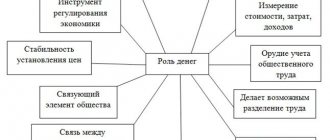Essay on the topic The magical power of words
Who said words can't be magical? Yes, this is said figuratively, but what magic they create, how they help a person, after that it is simply impossible not to call them magical.
Words can help in absolutely any situation. When a person despairs, a word of support helps him get back on his feet, force himself to move forward and not give up.
It seems that you did nothing at all, you just gave support and faith in the person when he needed it, but in fact it was a great deed, since it was you who did it, you did not pass by and stopped when you noticed a person who was grieving .
I began to notice that words help in times of trouble or grief, you don’t have to start acting, you just need to be close to the person and support him.
Man is a social being, he cannot live without society, therefore it is society that can understand his soul, listen, but in fact you don’t need much, you just need someone who will listen and not judge.
Therefore, it is not in vain that they say that words are a powerful weapon.
A word can heal the soul of a “wounded” person, but it so often happens in life that a person’s soul has been spoiled for various reasons, and almost everyone walks around with a torn soul mended by someone’s kind word.
Don’t rush to throw around words, the main thing is to understand the person.
Even a crying child can be stopped with a magic word. Yes, many will say, I don’t know how to support in difficult times, but in reality, such people are simply afraid to find themselves in a situation where they want to scream, but cannot, it is this fear that pushes them away from giving a helping hand. You should never laugh at a person’s misfortune, because you don’t know what will happen to you tomorrow.
Learn to say the right words, choose them correctly and give them to the person who really needs them. If people do not sew up the souls of other people, then a generation of an unhappy society that does not know regret will simply grow up.
Our power of words - benefit or harm
Always say positive words, learn to think positively . Everything that is inside a person will appear outside, that is, it will result in speech.
Think about your speech first, and only then say it out loud. There are words in the Bible about this: “even a fool will become wise if he speaks carefully.” Use positive words as often as possible, for example, support, praise, suffer, appreciate kindness, look for only the best in people. All this will come back to you with kindness, compassion, and care.
Even a few negative words addressed to a talented person can kill his aspirations forever. As a result, due to ordinary carelessness, you can unknowingly ruin relationships with loved ones, friends or work colleagues. You cannot carry negativity, anger, or mistrust within yourself, otherwise you will lose a lot and gain little in life. Words spoken in a quarrel are especially dangerous, as they cause great harm to the people around you.
It is worth noting that the power of words has already been proven by scientists who conducted experiments on water crystals. For this purpose, two test tubes with frozen water crystals were taken. They wrote good words on one and negative words on the other.
A few days later, scientists discovered that on the test tube with the inscriptions: love, thank you , the crystals remained the same, even a shine appeared. But on the test tube with the inscriptions: I hate, I despise, the crystals began to collapse, until they completely disappeared. Similar experiments with water were carried out with inscriptions in other languages and with different personnel, but the result was the same.
Of course, words have power, and enormous power at that. And if we take into account the fact that 90% of a person consists of water, then speech also has an influence on the body, and it is enormous.
Essays on the topic The power of the Russian word in the Russian language
It just so happens that Russian is one of the most difficult academic subjects for me and...one of my favorites. Yes Yes! One of my favorites.
If you tell my classmates about this, someone might be surprised: “How can you love these often completely incomprehensible spellings, commas, subjects, isolations?” But for the majority, I think my love for Russian language lessons is quite understandable. After all, they, without even suspecting it, have long been “hooked,” so to speak, on them. And not only because Russian language lessons lay the foundations of competent writing, speech culture, communication culture - culture in general.
It is unlikely that my peers clearly understand the need to master the laws of language. It is unlikely that they are now thinking about the global role of the Russian language in their lives. Frankly, I thought about this myself recently.
For some time now it has become especially interesting for me to “wander” along the roads and paths of my native Russian.
And it all started with a seemingly ordinary literature lesson, in which the conversation was about one of the lyrical-epic genres - the ballad.
I remember the teacher reading M. Yu. Lermontov’s poem “Airship”. The class listens with bated breath. And in my imagination a fantastic image of a hero rising from the grave appears. Once a year, on the anniversary of his death, he appears in front of a mythical airship, boards it and sets off “across the blue waves of the ocean” to his homeland - “Dear France, where the throne left glory.”
No no! At first I didn’t even suspect that the poem was talking about the great Napoleon, because his name is not even mentioned in the ballad. A very expressive negative technique.
But who doesn’t history call anything other than “emperor”? Who is wearing a “triangular hat and a gray field coat”? Who goes, “crossing his mighty arms,” to the steering wheel? Which of his “comrades-in-arms” does he call loudly? And why “do the marshals not hear the call”? Why does he “call his dear son,” promising him “half the world, and France only for himself”?
And now I’m already writing an essay at home about the hero of the ballad. And I understand: I know very little about the man who once owned the minds and souls of young people throughout Europe. And the young poet Lermontov, apparently, too. And then I go to the library (God, how rarely I do this!) and go online. I read, I read...
And again I turn to Lermontov. Why does the poet treat his hero so sympathetically? Why does his fate evoke pity for me, the reader?
I read, read and understand the work of the great Russian poet...
And it seems that I am beginning to see the light. For the first time in my life, I suddenly clearly realize the difference between an artistic image created by the imagination of a brilliant poet, and a real historical figure.
Now I understand: Napoleon, who invaded Russia with his army in 1812 and was defeated by the Russian army, and Napoleon as portrayed by M. Yu. Lermontov are not identical concepts.
It is still difficult for me to explain the poet’s sympathy for his hero. As, indeed, are my sympathies, my sympathy for the personality of the disgraced emperor, whose ashes rest on a deserted island in the ocean.
Napoleon is now in my mind a deeply unhappy, proud and lonely man. This is how my attitude towards the historical figure became after I became acquainted with the ballad of M. Yu. Lermontov.
This is the power of the poetic word. The power of the Russian word!
Although with my mind I understand: Napoleon is a cruel conqueror, a usurper, who brought a lot of trouble to the peoples of Europe, and to the Russian people too.
But by the power of the poetic word, the poet M. Yu.
Lermontov made me, if not fall in love, then at least sympathize with the fate of the once powerful emperor, buried “without honor by his enemies in quick sand” on the island of St. Helena and yearning for his homeland. And understand the tragedy not of the emperor, no, but of a man whose “bitter tears” “drip... onto the cold sand” and whose heart was pierced by loneliness.
Will I ever learn to master this powerful instrument of Man - the tongue? Expressive, convincing, bright language. Just like my favorite writer M. Yu. Lermontov.
Surprisingly, with the power of poetic words he makes me love his unfortunate hero - the unnamed but recognizable Napoleon. And even more so the Russian language.
And how can one not remember another Russian writer - Ivan Sergeevich Turgenev, who said about my native language: “... you alone are my support and support, oh great, powerful, truthful and free Russian language!” But this seems to be a topic for another essay.
Source: https://www.kursoteka.ru/essay/language/view/167
Option 2
As you know, the word is the basic unit of language. Only humans tend to communicate using words. This is a unique opportunity that allows you to conduct a dialogue, express your point of view and solve your problems. With the help of words it is possible to communicate new events and feelings. The word is the power that can lead and direct people. After all, if you choose the right words, you can lift the spirit of not only one person, but also an entire army. Therefore, the word has been given great importance since ancient times.
It is important for everyone to be able to speak beautifully, as life depends on it. This ability makes a person unique in his nature. Saturation and thoughtfulness of speech plays a huge role not only in everyday life, but also in professional life. With this you can get a promotion, enter into important agreements and establish yourself as a person. This way you can easily gain admiration from your colleagues. Correct and beautiful speech can relieve embarrassment and anxiety. With the help of speaking skills, you can easily make new acquaintances and avoid conflict situations, while maintaining your reputation. This becomes possible with mastery of oratory and a rich vocabulary.
It is clear that every person strives for an ideal, for self-development, but one must remember that with the help of words one can also hurt a person to the core. It’s not for nothing that there are proverbs: “The word is not a sparrow; if it flies out, you won’t catch it,” “The word is not an arrow, but it cuts right through the heart,” and “If the horse breaks out, you’ll catch it, but you can’t take back the spoken word.” This means that it is important not only to speak beautifully and correctly, but also to understand what and what to say. Just one word can cause serious harm to a person, and as you know, a word cannot be taken back and time cannot be returned either. It is necessary to take this into account, because without normal human relationships it is difficult to live, to be in a team and society.
Thus, the word is the basis of our entire life, because without it it is simply impossible. Communicating, reasoning and expressing our emotions is the main thing that distinguishes us from animals, so we need to appreciate and cherish this unique ability.
Essay “The Great Power of Words.”
Great power of words.
The word is a great weapon in life.
Klyuchevsky V.
In the modern world, people's lives are closely connected with words. It is also impossible without language. From birth, each of us is surrounded by a variety of words and languages. They are interconnected, complementing each other. I believe that in order to reach and touch the souls of millions of people, simple knowledge of the language will not be enough, because in addition to this, you simply need to be able to use the word.
We are all very happy people, we have the opportunity to communicate and learn new things, develop and make friends, convey to people what we think about and what we want to share, we can express our thoughts. And all this is available to us only thanks to the word and language. This means that the word is a gift. We should be grateful that we have a language that we can use.
As L.N. Tolstoy said: “The word is a great thing. Great because with a word you can unite people, with a word you can separate them, with a word you can serve love, but with a word you can serve enmity and hatred. Beware of such a word that divides people.” I completely and completely agree with these words. Many people have had moments in their lives when just a couple of words could return everything to its place, and for some it worked. And all because they were not afraid to speak out. There are times when words can even save a life. At first glance, these are ordinary words. But by talking about your problem, it becomes much easier. And if you speak sincerely, then everything will definitely come straight to the heart.
The word is included in such a concept as language. It is its main component, without which the language itself is virtually impossible. Speaking about language, we can say that mastering not one language, but several languages perfectly, gives a person a lot of new opportunities. Knowledge and information that could not be fully expressed in the native language become available. In addition, a person gains power and authority to some extent. This allows you to reach more people. And if you combine these possibilities with the word, then you can lead people, because, as you know, people trust those from whom they hear correct, confident and sincere words.
Not so long ago I realized that, having mastered the language and words, you can not only move mountains, but also realize all your most cherished dreams, which may seem transcendental. Anything is possible, you just need to gain new knowledge without stopping there. It is necessary to increase in all available ways. A. Perez said the right things: “Language and words are the branches and leaves of the heart and testify whether it is dry or green.”
What is the power of words?
How many letters are in the alphabet? In Russian, for example, there are only 33. How many words do you think can be made using these few dozen letters? Thousands, tens of thousands... We use many words every day. Many have become so familiar to us that we simply do not notice the meaning of these very words.
We simply rush through their stream, catching some of them. However, what is the power of words? From the first cry of a baby to the last word of an old man, all our words express feelings and thoughts, desires and aspirations, emotions and dreams. Let's try to write a unique essay about the power of words.
What is it?
The magical power of words - philosophical
Many philosophers - both ancient and modern - weave words together in ornate ways, giving them a certain meaning or, on the contrary, deliberately confusing us in their thoughts! The most famous philosophers we know belong to religious movements.
With just words they forced entire nations to change their beliefs and principles of life. Judaism, Buddhism, philosophers of ancient Greece, philosophers of Christianity, Schopenhauer, Kant, Marx, Nietzsche, Soloviev, Tsiolkovsky - they all built theories on the basis of their understanding of the world that in many ways even changed the course of history.
Their words had such a strong influence on people that they could break a person’s entire previous worldview.
The mysterious power of the word - psychological
How often do you think about what you say? What words do you say? Surely, many simply do not often think about the fact that any word, like a projectile, can injure a person, and sometimes, what’s worse, kill.
Every day we communicate with people and utter hundreds of words, but only some of them actually carry real power. These are the words that we have thought about for a long time, pondered them more than once, and nurtured them within ourselves.
And when such words come out of the mouth, they can really affect a person. For example, you often think that one of your colleagues is less efficient, smart, and successful. And finally, say something very unpleasant in the heat of the moment.
And it seems like time passes, everything is forgotten, but you don’t know what THAT one word could do to THAT person. How much it affected his day, week, and life in general.
Words that have power
Words spoken from the heart, emotionally, have power, and very great power. The more emotions and impressions you put into words, the stronger their effect on your interlocutor.
Let's imagine that a small child constantly does something differently than his parents want, he makes mistakes, but this only causes irritation and dissatisfaction in his mom and dad. In the end, they begin to repeat to him that he is “incompetent,” that he is “squint-handed,” and that he won’t be any good.
The baby begins to get used to these words, and ultimately it may happen that he really finds himself out of work in adulthood. And this is not at all because he has no talents or abilities, but because those parental words are deeply ingrained in him.
On the contrary, a girl who has been taught from infancy that she is the smartest and most beautiful will begin to strive for these ideals, and perhaps achieve a lot. This is precisely the power of words.
The power of the Russian word
In recent decades, the classic, correct Russian language has increasingly seemed prim and inappropriate to us. We can no longer live a day without foreign words that have entered our language so quickly and so imperceptibly. Of course, the modern era suggests the presence of some terms that do not exist in our language.
You can’t do without them, but it’s not at all difficult to read at least a story from an old Russian classic in order to feel the spirit of that era and comprehend not only the content, but also the beauty of the word itself! We are genetically linked to our language, so its beauty is undeniable to us.
Yes, it will be very useful for your self-development! After all, not all of us can admit to perfect knowledge of our native language.
Source: https://elhow.ru/ucheba/russkij-jazyk/raznye-voprosy-po-rja/v-chem-sila-slova







